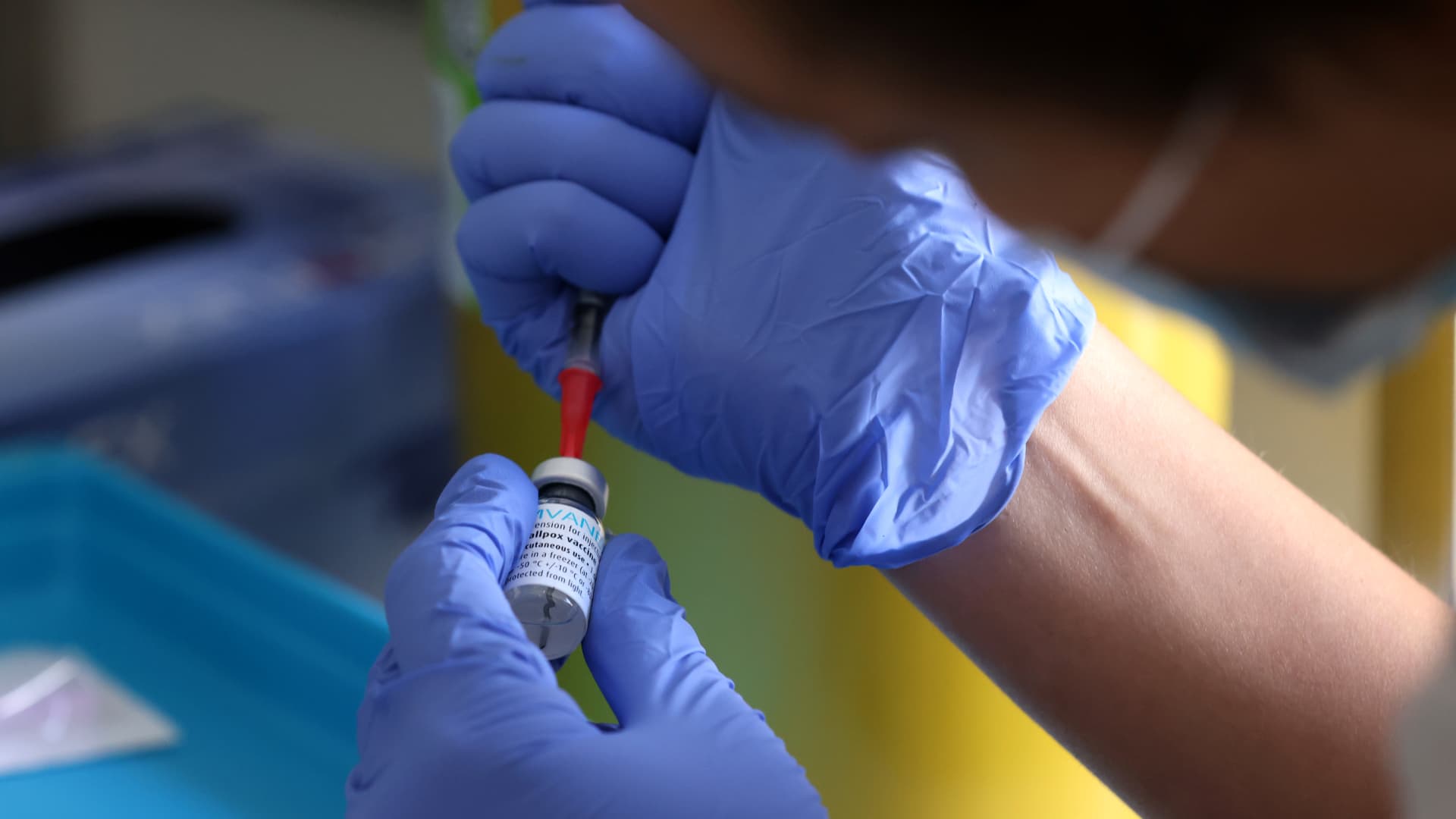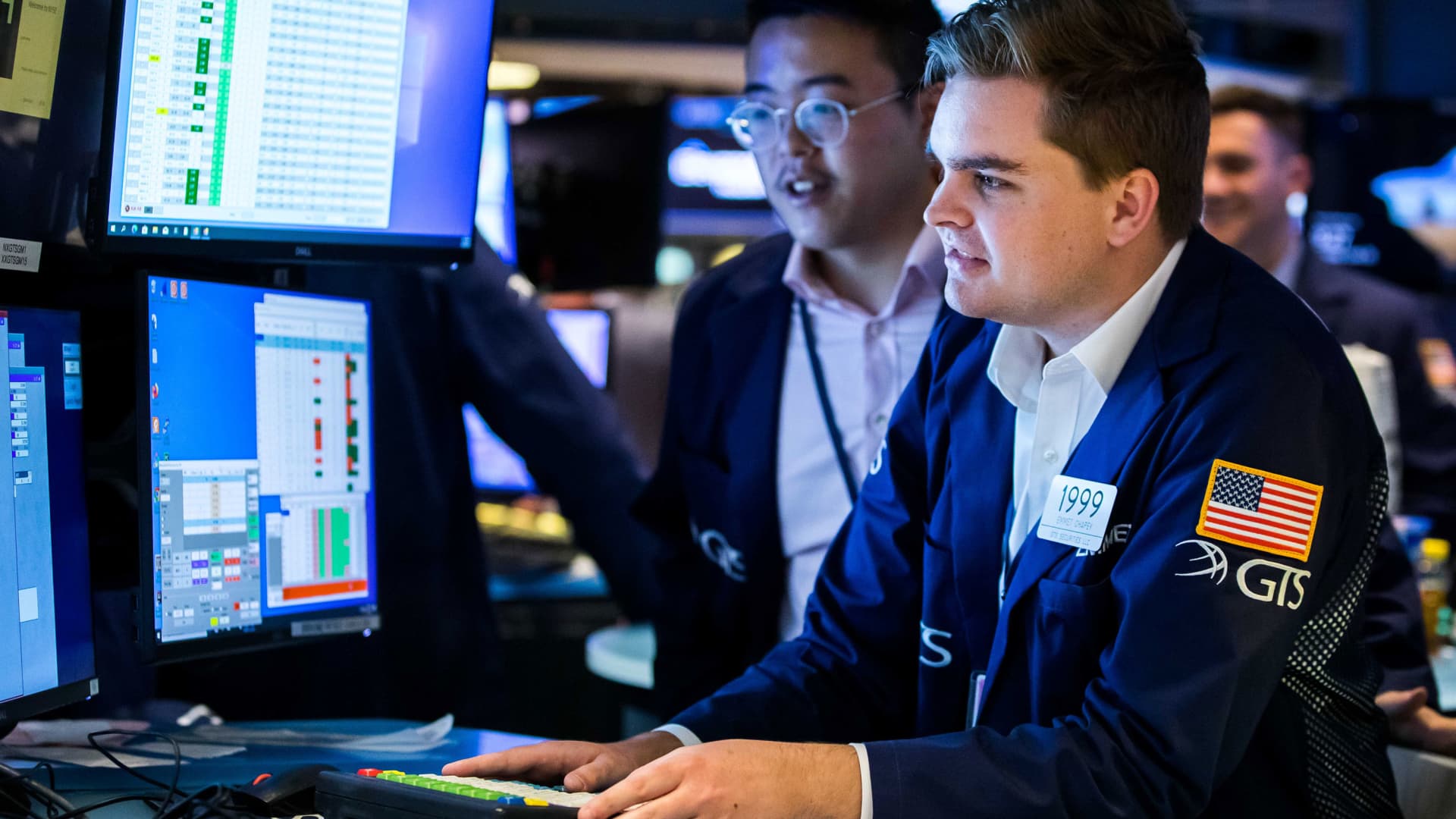US Markets
Monday, July 25th, 2022 5:25 am EDT

The World Health Organization on Monday cautioned against complacency in the rapidly escalating monkeypox outbreak, saying there is no guarantee that the virus will continue to spread within specific communities.
The U.N. health agency said that while cases have so far been concentrated primarily within gay and bisexual communities, there is little evidence to suggest that the disease will remain confined to those groups.
Rather, their early detection could be a harbinger of a wider outbreak.
“At the moment, cases continue to be reported among men who have sex with men for the most part, but we should not expect that to remain as such,” Dr. Catherine Smallwood, senior emergency officer at the WHO, told CNBC’s “Street Signs Europe.”
“This really might be the canary in the mine that’s alerting to us a new disease threat.Dr Catherine Smallwoodsenior emergency officer at World Health Organization
It is not uncommon for a virus outbreak to start in one particular group or setting before spreading more widely in the general population, Smallwood said, noting that health authorities could take cues from the early findings.
“This really might be the canary in the mine that’s alerting to us a new disease threat that could spread to other groups,” she continued.
A global health emergency
The WHO activated its highest alert level for the escalating outbreak Saturday, declaring the virus a public health emergency of international concern.
The rare designation means the WHO now views the outbreak as a significant enough threat to global health that a coordinated international response is needed to prevent the virus from spreading further and potentially escalating into a pandemic.
“We have an outbreak that has spread around the world rapidly, through new modes of transmission, about which we understand too little. For all of these reasons, I have decided that the global monkeypox outbreak represents a public health emergency of international concern,” WHO Director General Tedros Adhanom Ghebreyesus said.
More than 16,000 cases of monkeypox have been reported across more than 70 countries so far this year, and the number of confirmed infections rose 77% from late June through early July, according to WHO data. Europe accounts for more than 80% of confirmed cases in 2022.
Men who have sex with men are currently deemed at highest risk of infection, with around 99% of cases reported outside of Africa this year among men and 98% among men who have sex with men. However, the WHO and the Centers for Disease Control and Prevention have emphasized that anyone can catch monkeypox regardless of sexual orientation.
Symptoms of the disease — which is typically endemic to Africa — are largely mild, with most patients recovering within two to four weeks. Five deaths from the virus have so far been reported in Africa this year, while no deaths have been reported outside of Africa.
Still, Smallwood warned that more severe cases could become apparent should the virus spread to more immunologically vulnerable groups. Young children, pregnant women and the immunocompromised are considered particularly vulnerable to the virus.
“If it does spread to other groups — particularly to people who are vulnerable to severe monkeypox disease, which we know there are certain groups that are more prone to severe illness — then we might see increased public health impact,” she said.
More vaccine data needed
There are a number of existing vaccines and antivirals that have proven effective at treating and preventing the disease caused by monkeypox. Indeed, countries have already stepped up vaccination programs for those deemed most at risk, with the U.S. and the U.K. among others issuing hundreds of thousands of doses.
However, such vaccines are designed primarily for treating smallpox, and Smallwood said more information is needed to determine their efficacy as the monkeypox virus continues to spread.
We don’t have full information on how effective and how efficacious these vaccines are against monkeypox.Dr Catherine Smallwoodsenior emergency officer at World Health Organization
“We don’t have full information on how effective and how efficacious these vaccines are against monkeypox,” she said.
Smallwood said that the WHO’s call to declare a global health emergency would now draw more attention to the outbreak and, as a consequence, research on vaccines and other modes of treatment.
“We need to be able to be confident that the countermeasures that are available and potentially accessible are scaled up, and that we have the knowledge that we need to be really confident in their use,” she added.
The WHO is not recommending mass vaccination at this time, and the U.S. is currently reserving the vaccines in its stockpile for people who have confirmed or presumed monkeypox exposures.
—CNBC’s Spencer Kimball contributed to this report.
This post has been syndicated from a third-party source. View the original article here.




